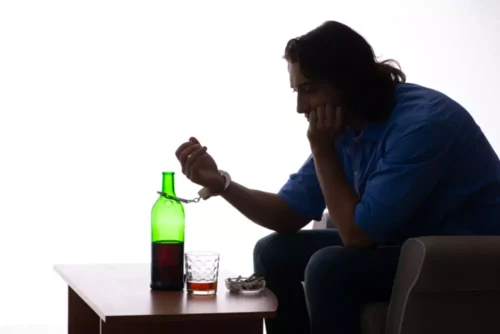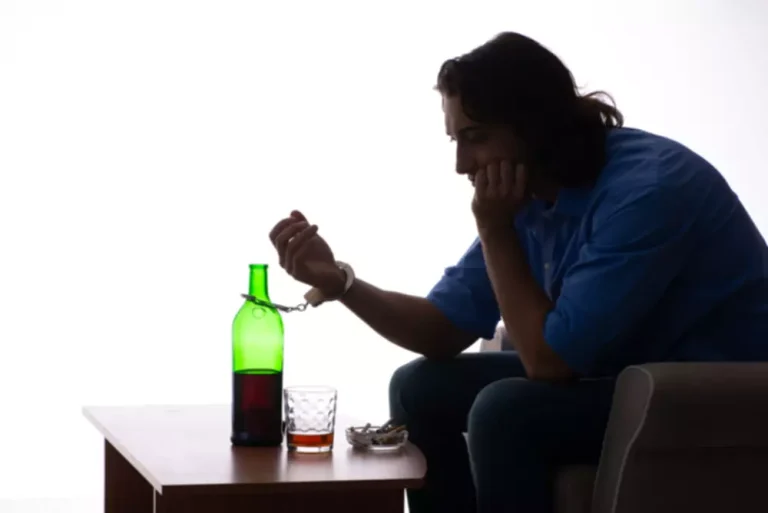
It, too, should not be used with alcohol due to liver damage and drowsiness risk. Here’s a list of medications that can negatively interact with alcohol, along with descriptions of what those alcoholism interactions may look like. In addition, the older we get, the more likely we are to be taking one or more medications that could interact with alcohol. Certain types of anti-nausea medication can be used to help someone who is trying to stop drinking alcohol. When used under medical supervision, the combination can be an effective way to treat alcohol withdrawal. Medications that are prescribed to treat nausea can make you feel drowsy, dizzy, and may impair your motor control—symptoms that can also be caused by alcohol.

Painkillers
Alcohol absorption occurs slowly from the stomach but rapidly from the upper small intestine. Once absorbed, the alcohol is transported to the liver through the portal vein. Antidepressants are medications =https://ecosoberhouse.com/ used to treat mental health conditions like depression and anxiety. Women and people with smaller body size tend to have a higher blood alcohol concentration when they consume the same amount of alcohol as someone larger.
Older people face greater risk
For example, the cough and cold medicine Vick’s NyQuil Liquid contains 10% alcohol and can lead to a significant interaction. NyQuil LiquiCaps and Alcohol-Free NyQuil Cold & Flu Nighttime Relief Liquid do not contain alcohol. They found that over 70% of U.S. adults regularly drink alcohol, and roughly 42% of those who drink also use medications that can interact with alcohol. Utilizing a large database of over 1,300 medications, they found that 45% of these medications had the potential to interact with alcohol. When paired with alcohol, muscle relaxers can also cause drowsiness and dizziness.
Upgrade your nursing career in Alcohol and Other Drugs Nursing
But you may not be Alcohol and Pills aware that mixing certain medicines with alcohol can increase the effects and put you at risk. The lists presented in this review do not include all the medicines that may interact harmfully with alcohol. To more closely review specific interactions, visit the Drugs.com Interaction Checker and speak with your doctor or pharmacist. Alcohol is also known to strongly inhibit (or block) an enzyme in the liver known CYP2C9. When alcohol is consumed with other drugs that primarily use this enzyme for breakdown and excretion, blood levels of the other drug may theoretically increase, leading to increased side effects and toxicity.

High blood pressure medications
Most studies assessing alcohol-medication interactions focus on the effects of chronic heavy drinking. Relatively limited information is available, however, on medication interactions resulting from moderate alcohol consumption (i.e., one or two standard drinks1 per day). Researchers, physicians, and pharmacists must therefore infer potential medication interactions at moderate drinking levels based on observations made with heavy drinkers.
- For example, the type of medication, as well as the type and amount of alcohol, can make a difference in how safe or unsafe it is to combine them or how long after taking the medication you should wait before consuming alcohol.
- Diabetics who consume alcohol also must be alert to the fact that the symptoms of mild intoxication closely resemble those of hypoglycemia.
Additionally, if you have an underlying health condition like heart disease or high blood pressure (hypertension), mixing alcohol with your medications can put you at risk for complications. If you’re drinking excessively or regularly, you are increasing the risk of adverse medication reactions. The combination of medication and alcohol can lead to serious health consequences, including overdose and even death. “It’s generally advisable to avoid drinking alcohol when taking medications,” says psychiatric clinical pharmacist Mei T. Liu, PharmD, BCPP.
Alcohol, like some medicines, can make you sleepy, drowsy, or lightheaded. Small amounts of alcohol can make it dangerous to drive, and when you mix alcohol with certain medicines you put yourself at even greater risk. Combining alcohol with some medicines can lead to falls and serious injuries, especially among older people. Some medicines that you might never have suspected can react with alcohol, including many medications which can be purchased “over-the-counter”—that is, without a prescription.

The specific drinking levels at which acetaminophen toxicity is enhanced are still unknown. Because acetaminophen is easily available OTC, however, labels on the packages warn people about the potentially dangerous alcohol-acetaminophen combination. Furthermore, people should be aware that combination cough, cold, and flu medications may contain aspirin, acetaminophen, or ibuprofen, all of which might contribute to serious health consequences when combined with alcohol. The package inserts for most antibiotics include a warning for patients to avoid using alcohol with those medications.
- When you have alcohol use disorder, just thinking about alcohol triggers a pleasurable response in the brain.
- You can look at medicine label ingredients to see what medicines have alcohol in them, or ask your pharmacist.
- Some over-the-counter medicines that you shouldn’t combine with alcohol include medicines for sleeping, travel sickness, cold and flu, allergy, and pain.
“The drugs circulate throughout the body, including the brain, to reduce appetite,” Kushner says. A growing body of evidence on GLP-1 drugs points to significant effects on behaviors. Hall was a moderate drinker who enjoyed wine or a cocktail at social gatherings. But once she started the medication, her appetite for alcohol changed. At the time she had elevated blood sugar and her weight put her in the category of having obesity. She’s now lost more than 100 pounds, and though she was never a daily drinker, she consumes much less.


Some medications—including many popular painkillers and cough, cold, and allergy remedies—contain more than one ingredient that can react with alcohol. Read the label on the medication bottle to find out exactly what ingredients a medicine contains. Ask your pharmacist if you have any questions about how alcohol might interact with a drug you are taking. Mixing these medications with alcohol intensifies the side effects and increases the risk of a fatal overdose.

No Responses